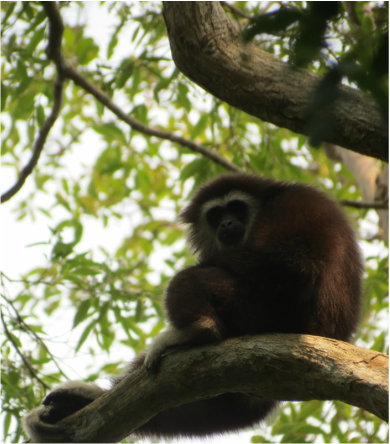Research InterestsI am interested in exploring ecological explanations for within-species behavioral and dietary variation as well as the evolution of pair-bonds and pair-living social systems. In particular, my research focuses on the ways in which nonhuman primates cope with harsh ecological conditions and sub-optimal habitats. My field site is located in a dry, mosaic forest in western Thailand and I conduct habitat-based comparisons between groups of wild white-handed gibbons living in different forest types (evergreen compared to mostly deciduous dipterocarp) focusing on ranging behavior, diet, energy balance, and social behavior. I utilize remote sensing data and GIS technology and plan to use these techniques in my future projects to examine the relationships between neighboring groups, particularly during the height of the dry season. During this period, gibbons depend heavily on liana food sources. My next projects will investigate the nutritional quality of these key resources and how food availability changes ranging behaviors that could influence the group's ability to successfully defend a territory. Future research will consider ways in which ecological differences may contribute to the prevalence of polyandrous social groups in these primarily pair-living nonhuman primates.
|
My dissertation fieldwork was funded by grants from the Fulbright Foundation, National Science Foundation, American Society of Primatologists, and The University of Texas at San Antonio. I also received a fellowship from the American Association of University Women to assist me during the write-up phase of my doctoral degree.
|

